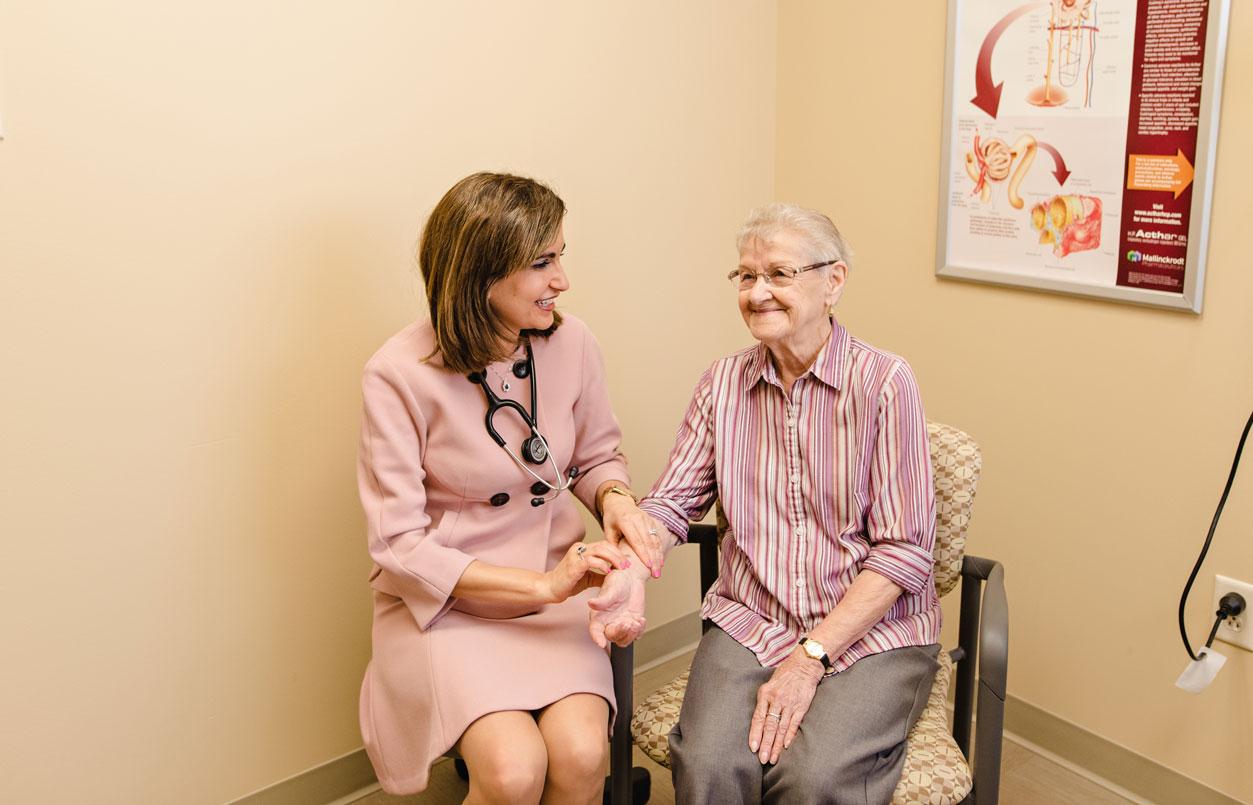Experience the Blessing Difference: Our Kidney (Nephrology) Care
Patients choose us because of our:
-
Thorough monitoring and treatment options: Our kidney doctors (nephrologists) work closely with primary care doctors to follow and monitor patients’ kidney function. Our goal is to stop the progression of kidney disease and allow patients to live the fullest life possible. Patients are monitored and treated through:
-
Routine blood tests, which tell doctors how well your kidneys are functioning. For patients who need help keeping their blood sugar in check, our doctors work closely with the diabetes care team. This team offers a wealth of support and treatment options. Learn more about the Blessing Diabetes Center.
-
Regular blood pressure monitoring, which can alert doctors to disease progression if your blood pressure is consistently high
-
-
Medication management: Your doctor may order medications to help slow down the progression of kidney disease. Medication can also treat symptoms you may be experiencing from the disease.
-
Convenient dialysis locations: Through a partnership with national dialysis treatment provider DaVita, Blessing provides inpatient and outpatient dialysis treatments at multiple locations in the community, including Blessing Hospital and Illini Community Hospital. That means less time traveling to treatment and more time living your life.
-
Depth of expertise: Our kidney doctors are board certified in nephrology, which requires extensive training in kidney care and treatment.
-
Specialized surgical options for end-stage disease: Patients with advanced kidney disease do not have to travel out of the area if surgery is needed. Blessing has 2 board-certified urologists who have specialized training and utilize advanced robotic technology to perform surgeries that remove all or part of the kidney.
Kidney Disease: What You Should Know
Chronic kidney disease can be caused by different conditions, but the effect is the same: Your kidneys are not able to work effectively. Here’s what you should know:
-
Common causes: Uncontrolled blood sugar (from diabetes) and high blood pressure (called hypertension) are 2 leading causes of kidney disease.
-
Progression is slow: Kidney disease is a silent condition that often shows few to no symptoms, particularly in early stages. However, the disease is still causing damage. Kidney disease progresses slowly, but can lead to complications such as:
-
Anemia
-
Nerve damage
-
Kidney failure
-
-
Kidney disease can lead to kidney failure: If kidney disease is not treated, it can lead to kidney failure. Treatment options for patients with kidney failure are:
-
Dialysis, a machine that filters your blood
-
Kidney transplant, a surgery that replaces a failing kidney with a healthy donor kidney
-
-
Early treatment is essential: To treat chronic kidney disease, we monitor kidney function with blood tests in order to prevent its progression. The earlier you seek treatment for kidney disease, the more likely you can stop it from getting worse. Protecting your kidneys is the best way to prevent the disease from progressing. You can keep your kidneys healthy by eating a balanced diet and keeping your blood pressure under control.
-
Symptoms of kidney disease: You should seek a nephrologist’s opinion if you have:
-
High blood pressure that does not reach normal levels with medication
-
Uncontrolled blood sugars that do not reach normal levels with medication
-
A family history of kidney disease, meaning a parent, sibling or other close relative has been treated for kidney disease previously
-
Contact Us
To schedule an appointment or refer a patient, please call (217) 214-6240.






